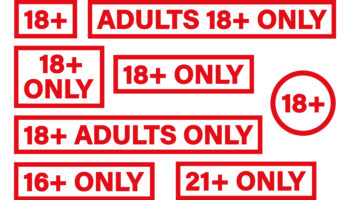Maybe score one for porn?
The California legislature’s age verification bill, a measure sponsored by activists woefully anti-naughty visual content is, as stated here“...effectively dead after its potential price tag landed it in the Senate Appropriations Committee’s Suspense File.”
AB 3080 did indeed unanimously pass in May, through the California State Assembly and was being considered by the state’s Senate. But the measure, introduced by former police officer Juan Alanis will not crawl further in its present form. If Alanis will try again to take what he calls reasonable steps to make sure only adults view adult material is not clear.
As it isn’t clear what exactly can best be done for age verification.
The Free Speech Coalition’s ride
The Free Speech Coalition, from which the above quote is taken, was one of the groups that was at the forefront of protesting AB 3030.
As the FSC makes plain in their posting above they “…completely agree with the need to keep minors from accessing age-inappropriate content,” while at the same time they were protesting the “unintentionally blocking millions of adult consumers.”
In June, FSC withdrew its formal opposition, following in-depth talks with Alanis and the introduction of several amendments addressing the group's most salient criticisms of the bill.
The Electronic Frontier Foundation, FIRE, and the ACLU maintained their opposition.
What exactly did AB 3080 say?
As “The Parent’s Accountability and Child Protection Act,” presently exists, a person or business conducting business in California selling "specified products or services,” needs to “take reasonable steps to ensure that the purchaser is of legal age at the time of purchase or delivery, including verifying the age of the purchaser.” Those “reasonable steps” can include requiring the product or service purchaser to “input, scan, provide, or display a government-issued identification, as specified.”
In other words, the law is mainly in place to make sure that persons under eighteen years of age do not buy or access pornography. Not a bad goal, in and of itself.
Alanis’s expansion of the bill though would require “…the Attorney General to issue regulations further defining reasonable steps pursuant to these provisions, as provided. The bill would expand the above-described prohibition against retention, use, or disclosure to apply to a person or business that conducts business in California and that seeks to make available products that are illegal to make available to minors and would require the business or person to ensure that the reasonable step is designed to anonymize a user’s identity and is incapable of being used to create a record of the user's online activity.”
The blowback by those opposed was that CA’s AG might be influenced by whatever political party was in place at the time over the AG. Plus, as the Electronic Frontier Foundation makes plain, the various age verification systems presently used are, at best, faulty, with plenty taking in more information than is needed and “relies on mandatory identity verification” with “significant privacy violation to require all people to submit either their official government-issued identification credentials or to delve into their transactional history including bank account information."
This last, the EFF says could lead to “unfair and serious consequences for an adult viewing these sites.”
The future of AB 3080
AB 3030 is now in the Senate Appropriations suspense file. It will be held there until the state budget has been completed and funds are considered in relation to the matter. But the state’s continued budget deficit makes bills in that file quite unlikely to move forward for another push.




